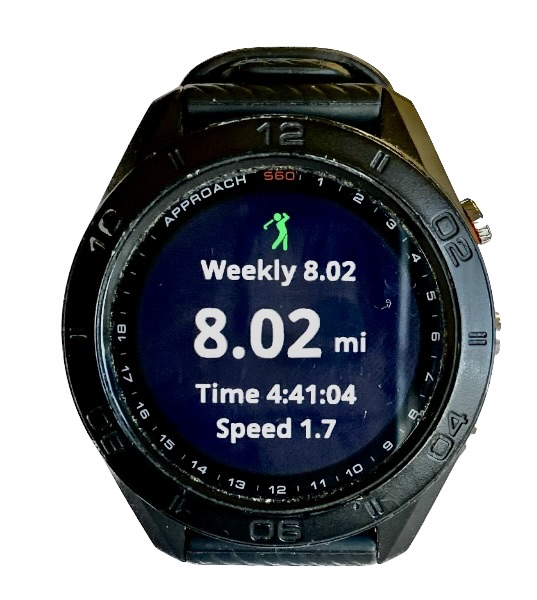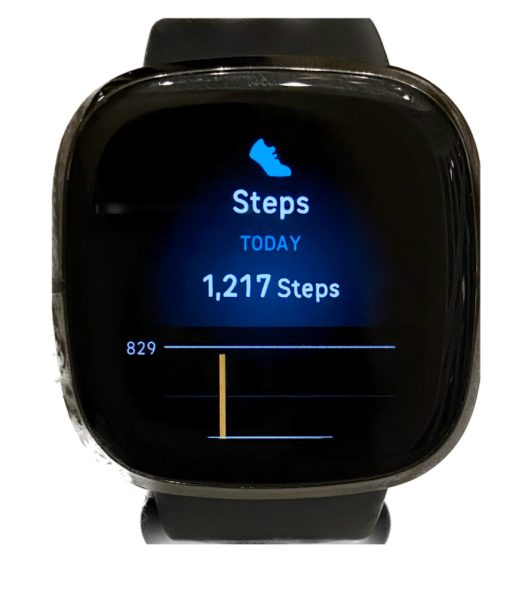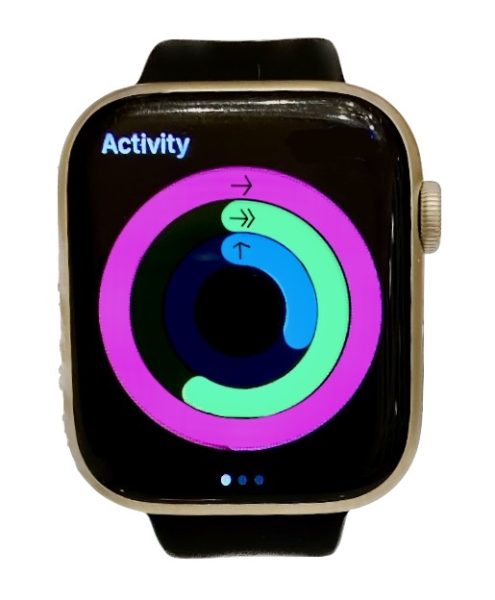You’re browsing the market for a sports watch. But which watch? And what separates a sports watch from your standard wristwatch? Well, fear not. With our handy explainer, you’ll be a sports watch expert in no time. No more weighing over which watches.
Sports watches, despite what the name might suggest, are actually not solely for sports. Rather, they offer a variety of fitness and health metrics including GPS tracking, activity timing and performance records among others.
As such, athletes and fitness enthusiasts alike often utilize sports watches. But with an increasing number of sports watches on the market, determining what watch to choose can be a difficult task.

(Tiffany Zhu)
Even as one of the oldest contenders on the sports watch market, the Garmin has managed to stay relevant among athletes and fitness enthusiasts alike. Garmin sports watches offer a range of options in both price and features, though the series often lies on the higher end of both such metrics for fitness watches. From accurate time and distance tracking to recording exercise history, the Garmin series provides all the necessary metrics of an athletics watch.
“I like the Garmin because it accurately tracks my pace and doesn’t do the thing where it tracks the average of my pace,” varsity girls cross country runner and track athlete Emily Bryan (10) said. “It tracks my real-time pace when I’m running and then it’s also tracking distance.”
Garmin’s user base consists primarily of runners due to specialized running metrics, but athletes of all kinds can use a Garmin. If you’re looking for a versatile sports watch option, a Garmin may be the choice for you.
Another option in the health watch market is the FitBit, offering more of a focus on general fitness than sports. The FitBit tracks many personal health measures like heart BPM, breathing rate and oxygen saturation. While less tuned for sports due to fewer athletic features, the FitBit can still can measure athletic performance effectively, providing both distance and time metrics.

(Tiffany Zhu)
“I’d say that it’s pretty good for athletic people,” junior varsity boys cross country member Jonathan Li (9) said. “That’s what a Fitbit is designed for because of features like the health metrics and being able to log activities.”
For those searching for a more minimalist fitness watch that can inspire a healthier lifestyle, the FitBit might be what you’re looking for.
Unlike both the Garmin and the FitBit, the Apple Watch does not market itself solely as a fitness watch. However, with inherent health features like heart rate measurements and step tracking, many athletes have turned to it as an alternative to traditional sports watches.
“I like my watch because it tracks all my metrics so I know how fast I’m running and the distance,” junior varsity boys cross country member Nelson Gou (11) said. “For the Apple Watch specifically you can connect your headphones to it and get your music on it and go running without your phone, which is convenient.”
Even providing all the advanced athletics metrics that other high-end sports watches provide, such as blood oxygen levels, respiratory rate and cadence, the Apple Watch remains a suitable choice for any athlete.

(Tiffany Zhu)
“It’s actually changed my behavior quite a bit,” Director of Journalism and athlete Whitney Huang said. “I’m a fairly athletic person, but I don’t actively think about it. Instead, with the Apple Watch, because of the fact that it does count all your steps, it sometimes will encourage you to start a workout if you’re already doing something more active.”
Additionally, the Apple Watch functions as a versatile smartwatch, capable of connecting to other Apple devices. To those hoping for a generalized, high-end watch that can also serve fitness uses, the Apple Watch has all those features provided.
From long-time athletes to prospective fitness enjoyers, with the amount of athletics watches on the market, there’s an option for everyone.


















![“[Building nerf blasters] became this outlet of creativity for me that hasn't been matched by anything else. The process [of] making a build complete to your desire is such a painstakingly difficult process, but I've had to learn from [the skills needed from] soldering to proper painting. There's so many different options for everything, if you think about it, it exists. The best part is [that] if it doesn't exist, you can build it yourself," Ishaan Parate said.](https://harkeraquila.com/wp-content/uploads/2022/08/DSC_8149-900x604.jpg)




![“When I came into high school, I was ready to be a follower. But DECA was a game changer for me. It helped me overcome my fear of public speaking, and it's played such a major role in who I've become today. To be able to successfully lead a chapter of 150 students, an officer team and be one of the upperclassmen I once really admired is something I'm [really] proud of,” Anvitha Tummala ('21) said.](https://harkeraquila.com/wp-content/uploads/2021/07/Screen-Shot-2021-07-25-at-9.50.05-AM-900x594.png)







![“I think getting up in the morning and having a sense of purpose [is exciting]. I think without a certain amount of drive, life is kind of obsolete and mundane, and I think having that every single day is what makes each day unique and kind of makes life exciting,” Neymika Jain (12) said.](https://harkeraquila.com/wp-content/uploads/2017/06/Screen-Shot-2017-06-03-at-4.54.16-PM.png)








![“My slogan is ‘slow feet, don’t eat, and I’m hungry.’ You need to run fast to get where you are–you aren't going to get those championships if you aren't fast,” Angel Cervantes (12) said. “I want to do well in school on my tests and in track and win championships for my team. I live by that, [and] I can do that anywhere: in the classroom or on the field.”](https://harkeraquila.com/wp-content/uploads/2018/06/DSC5146-900x601.jpg)
![“[Volleyball has] taught me how to fall correctly, and another thing it taught is that you don’t have to be the best at something to be good at it. If you just hit the ball in a smart way, then it still scores points and you’re good at it. You could be a background player and still make a much bigger impact on the team than you would think,” Anya Gert (’20) said.](https://harkeraquila.com/wp-content/uploads/2020/06/AnnaGert_JinTuan_HoHPhotoEdited-600x900.jpeg)

![“I'm not nearly there yet, but [my confidence has] definitely been getting better since I was pretty shy and timid coming into Harker my freshman year. I know that there's a lot of people that are really confident in what they do, and I really admire them. Everyone's so driven and that has really pushed me to kind of try to find my own place in high school and be more confident,” Alyssa Huang (’20) said.](https://harkeraquila.com/wp-content/uploads/2020/06/AlyssaHuang_EmilyChen_HoHPhoto-900x749.jpeg)
















